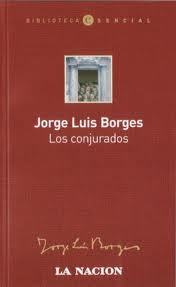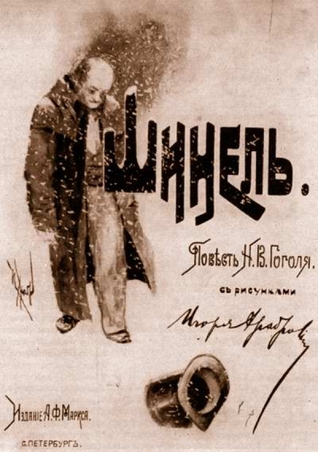Rating: ★★★★
25/03/14
Each individual misfortune, to be sure, seems an exceptional occurrence; but misfortune in general is the rule.
Arthur Schopenhauer, "On the Suffering of the World"
We are here to shatter your warm and fuzzy world inhabited by unicorns and puppies that eat cupcakes every time it rains. You may have the feeling of never leaving that world. And that's a valid choice, we all have our particular ways of dealing with our existence. If you do, avoid Schopenhauer's work. If you feel you can take it, proceed to read this book.

In 2005, I bought a little book called
Schopenhauer para Principiantes. I was quite young and I am not sure where I found his name (I do remember the year because every time I buy a book, I write the date on them; a little quirk). I think it was during some period when I was obsessed with Hinduism and Buddhism and other aspects of the Eastern philosophy and religion. Schopenhauer was heavily influenced by the Upanishads.
Anyway, I felt so close to his points of view. I always thought I'd enjoy reading his books. And I did. I enjoyed reading this one, most of the times.
I decided to mention what I didn't like, first. And then, his other thoughts that truly emanate intelligence and creativity. That should be the last thing to be read.
Let's start with those simple-minded creatures whose only job is to have children and were born to be nurses and teachers. Yes, women.
One needs only to see the way she is built to realize that woman is not intended for great mental or for great physical labour. She expiates the guilt of life not through activity but through suffering, through the pains of childbirth, caring for the child and subjection to the man, to whom she should be a patient and cheering companion. (49)
After reading that, Schop certainly wasn't my favorite person in the world. And that is just the beginning. Do you think his misogynistic capabilities end there?
[they] are childish, silly and short-sighted, in a word big children... The nobler and more perfect a thing is, the later and more slowly does it mature. The man attains the maturity of his reasoning powers and spiritual faculties hardly before his twenty-eighth year; the woman with her eighteenth. And even then it is only reasoning power of a sort: a very limited sort. (50)
Yes, ignoble and imperfect ladies. Women are portrayed as little human beings that make babies and never mature, and have to hold on to their beauty and charm in order to get successful businessmen to support them (okay, I know a couple of those, but do not generalize, I beg you. Just like all men aren't noble and perfect, for god's sake). It has been said that, in his last years, he had a more favorable opinion about women. Well, I haven't seen the page. No redemption for you on that subject, my friend.
Next topic: freedom of the press. Or the permit to sell poison, whatever you want to call it.
For what cannot be put into the heads of the ignorant and credulous masses? – especially if you hold before them the prospect of gain and advantages. And of what misdeeds is man not capable once something has been put into his head? I very much fear, therefore, that the dangers of press freedom outweigh its usefulness, especially where there are legal remedies available for all grievances. In any event, however, freedom of the press should be conditional upon the strictest prohibition of any kind of anonymity. (89)
And then he focused on what he considered the perfect form of government... Yeah. I wasn't particularly fond of all his views developed in the essay "On law and politics".
Moving on to the things I enjoyed reading. First, Hollingdale's introduction. Thoroughly researched and well-written. He shared many facts of Schopenhauer's life and work and he managed to keep me interested. He chose several essays and aphorisms from the second volume of Parerga and Paralipomena (1851) to shed some light on his amazing work and form an idea of his philosophy.
Schopenhauer described brilliant ideas without using an extremely complicated language that only scholars would be able to understand. The complexity of his thoughts and the way they are written... simply outstanding. It reminded me of my experience with Bertrand Russell, while reading
Why I Am Not a Christian and Other Essays on Religion and Related Subjects. They have similar writing styles: straightforward and kind of humorous at times. Just the writing, though. Russell didn't think about S. with great enthusiasm since he considered him, basically, a hypocrite because he didn't lived according to what he preached... I wouldn't know.
The first essay is about a main characteristic of Schopenhauer's philosophy. Suffering. We seem to be doomed to suffer. And even if we wouldn't suffer, we would long for it.
Not the least of the torments which plague our existence is the constant pressure of time, which never lets us so much as draw breath but pursues us all like a taskmaster with a whip.
And yet if every desire were satisfied as soon as it arose how would men occupy their lives, how would they pass the time? (25)
If we wouldn't have misery in our world, we would create it, just to have something to worry about, apparently. (There is a funny Utopia reference,
the land of More.) So, he recommended us to see the world not as the perfect work of a superior being because first, the world is full of misery; second, we live in it. Humans are considered highly developed beings but, in fact, they are not. However, think about it. It couldn't be otherwise since we are here thanks to a punishment for a forbidden desire (insert "story of the Fall" here). All in all, once you have accepted suffering, you'll see it as something ordinary, you won't be surprised because you will think of it as something normal. Considering we have such a tragic origin and we are doomed to suffer, we should conduct ourselves with some indulgence. We must treat each other with tolerance, patience, forbearance and charity. Everything has its silver lining.
The following chapter is about the vanity of existence, which I found brilliant.
Every moment of our life belongs to the present only for a moment; then it belongs for ever to the past. (31)
When I was younger, I used to be haunted by that thought. What is the present? What is now, this instant? Merely a second. Then it is all safe in the past. The past is not last year; it is already when I wrote "The past is not last year". That hopeless feeling of needing more time is universal.
He then continued squeezing and kicking my soul with his thoughts on the human life and our needs that are impossible to satisfy.
As things are, we take no pleasure in existence except when we are striving after something – in which case distance and difficulties make our goal look as if it would satisfy us (an illusion which fades when we reach it) – or when engaged in purely intellectual activity, in which case we are really stepping out of life so as to regard it from outside, like spectators at a play... Whenever we are not involved in one or other of these things but directed back to existence itself we are overtaken by its worthlessness and vanity and this is the sensation called boredom. (32)
There are other essays and aphorisms about religion, philosophy, ethics, books and writing (that ooze arrogance from time to time) and introspection that are written with the same accessible language and express impressive—sometimes provocative—ideas. We may not agree with a couple of them but we have to admit that this man was an endless source of creativity. He expressed his ideas and backed them up with his own arguments and created a representation of the world that influenced many people. He wasn't afraid of showing what he really thought about several subjects, no matter how miserable and disturbing it all might be.
So, here we are. I am full of contradictions, like any other person. I loved him and disliked him with the same intensity, at the same time.
Kant's fan, Hegel's foe and one of the greatest, most interesting and provocative philosophers I have read so far.
Actual rating: 3.5 3.9 stars.















